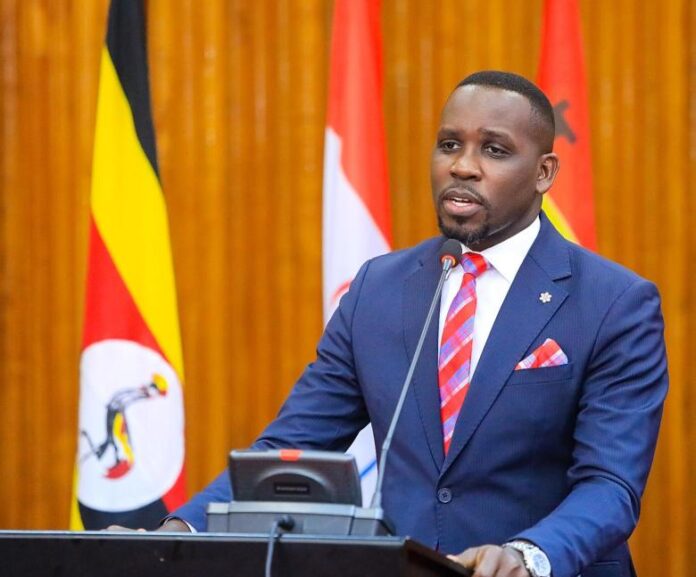The National Unity Platform (NUP) has announced plans to challenge the newly signed Uganda People’s Defence Forces (UPDF) Amendment Act 2025 in court, citing constitutional concerns and lack of stakeholder consultation.
Leader of Opposition Hon Joel Ssenyonyi made these remarks while addressing the press at the party school of leadership in Kamwokya on June 17, 2025, where he said that even when the bill has been assented to into law by the president, it will be challenged in the courts of law as soon as it is gazetted.
“President Museveni has signed the UPDF Amendment Act into law, but once it’s gazetted, NUP will challenge it in court with all our legal strength,” Ssenyonyi stated. “We reject the idea of charging civilians in military courts, which this law seeks to enforce.”
Ssenyonyi condemned the manner in which the bill was passed, accusing the government of sidelining key stakeholders and rushing the legislative process.
“We were informed just the night before the bill was presented to the committee and asked to appear by 10:00 a.m. the next day. That gave us no time to consult or prepare,” he said.
“This was not just NUP other political parties and stakeholders like the Uganda Law Society were also excluded. This process was unfair, and we will challenge it,” Ssenyonyi added.
The remarks follow President Museveni’s assent to the controversial bill on June 16, 2025. Once gazetted, the law will allow civilians to be tried in military courts, a move that contradicts a Supreme Court ruling issued earlier this year on January 31, 2025, which declared such trials unconstitutional.
NUP President Robert Kyagulanyi, also known as Bobi Wine, echoed the concerns, alleging that the new law is designed to silence opposition voices.
“This law is meant to target our supporters and opposition leaders using trumped-up charges in military courts that lack transparency and fairness,” Kyagulanyi said.
“Civilians already struggle to get justice in civilian courts now imagine their fate in military courts, which are nothing but kangaroo courts,” he added.
Kyagulanyi called on Ugandans, regardless of political affiliation, to reject the law, which he says undermines justice and constitutional freedoms.
“This is not just about NUP supporters. It affects all Ugandans. When we take over power, laws like this will be among the first to be repealed because they deny people the right to a fair trial,” he added.
One of the touchiest aspects of the new law is Section 117A, which introduces Schedule B. This provision defines what constitutes military stores, items that are now considered the exclusive property of the defense forces. Among them are ceremonial military shoes, footwear that, critics argue, is nearly indistinguishable from common formal shoes worn by many Ugandans.
This clause has sparked public concern, with fears that ordinary citizens could unknowingly violate the law simply by wearing everyday items. Critics warn that without clear interpretation and safeguards, the law could be misused, potentially even against the lawmakers who passed it.
The National Unity Platform’s vow to challenge the law in court sets the stage for a potentially landmark constitutional battle, one that will test the boundaries of civilian rights, legislative integrity, and the role of military justice in Uganda’s legal system.
With questions looming over both the content and the process behind the law’s enactment, its implementation is likely to remain a deeply divisive issue in the country’s political and legal dialogue.















